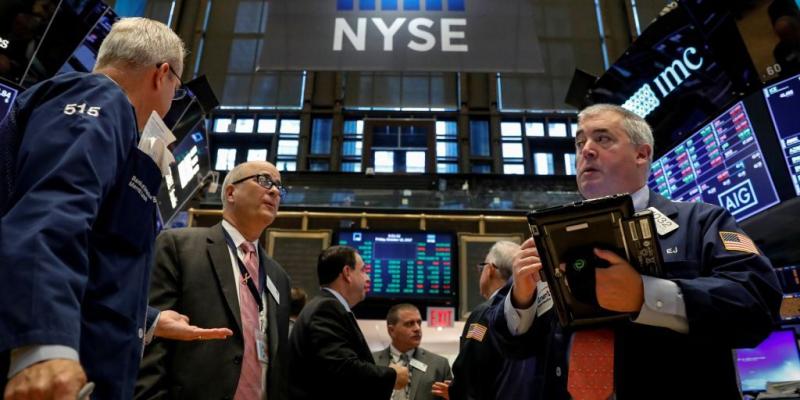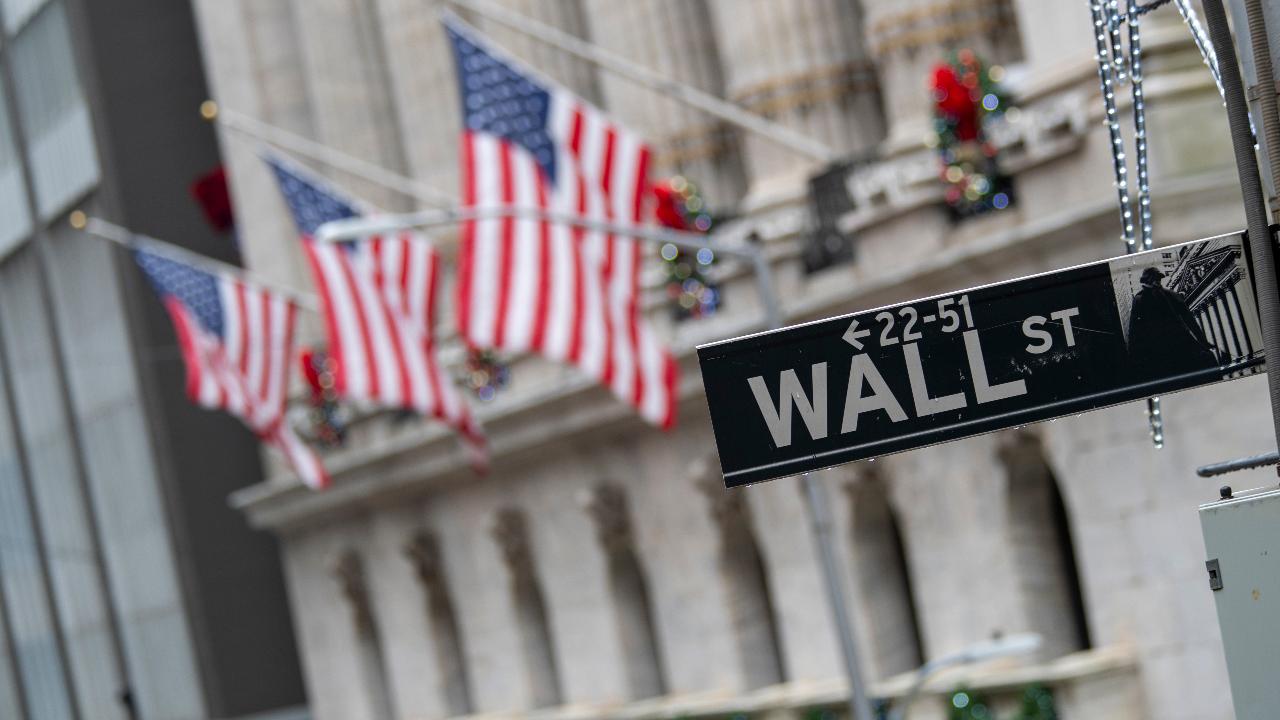Stimulus intended to help coronavirus-ravaged small businesses instead rewarding hedge funds, brokerages | Fox Business



close  video
video
High-end businesses qualifying for PPP, missing focus on small businesses: Report
FOX Business' Charlie Gasparino says banking executives are reportedly receiving a surge of Paycheck Protection Program applications from hedge funds, financial advisers and law firms.
Get all the latest news on coronavirus and more delivered daily to your inbox. Sign up here.
Continue Reading Below
When the chief executive of a midsized bank was briefed on the status of small-business loans being made under the federal government'scoronavirus stimulus plan, he nearly hit the roof.
The bank was receiving applications not just from those barely solvent mom-and-pop businesses like restaurants, salons and family-run factories shuttered amid the nationwide pandemic shutdown that the legislation was supposed to help.
Flowing into his system were applications from businesses no one would consider small, or even barely solvent: Midsized hedge funds, brokerage businesses, small law firms, all outfits that are making money, much of it through fee income, and many operating remotely almost as if nothing had changed.
CORONAVIRUS SMALL BUSINESS LOAN PROGRAM RAN DRY — WHAT HAPPENS NOW?
How could this be? What the banker discovered was that with less than 500 employees, financial firms and other high-end businesses are technically qualified for low-interest federally guaranteed loans under the broad parameters of the government's Payroll Protection Program (PPP).
And many were sending applications to his bank for the cash, as much as $10 million in the form of a forgivable loan, even if these weren't the types of small businesses Washington was looking to aid.
Even worse, the hedge funds and brokerage businesses were in effect taking money that should be earmarked for businesses that can barely survive in a time of social distancing and quarantines.
These companies have been forced to lay off workers just to make rent, while many banks were prioritizing loans on a first-come, first-served basis and giving priority to their best customers. That means hedge funds and financial firms with deep pockets and significant banking relationships could be getting the money ahead of the local coffee shop.
WHITE HOUSE CONFIDENT DEAL TO FUND PPP WILL BE REACHED NEXT WEEK: SOURCE
"Unlike the local coffee shop, hedge funds and brokerage firms are still earning fee income from their clients," said the banker, a well-known fixture in the financial business, who spoke on the condition that neither he nor his firm would be identified. "And now they’re taking money away from people who need it the most."
The banker says he spoke to FOX Business because he is concerned about the inequality gap involving the pandemic stimulus and the social unrest it could create. He said the spending being directed at Wall Street through various Federal Reserve programs as well as the hedge fund loophole in the loan program dwarfs the stimulus designed for Main Street businesses.
 Video
Video
And he said it will lead to a widening class divide when the quarantines are over unless the federal government acts and acts fast. If small businesses don't have access to the stimulus funds, they will increase layoffs — many of these employees are minorities and all of them working-class Americans — or face bankruptcy, as is happening today.
Wall Street, meanwhile, has been thriving, with the Dow Jones Industrial Average recovering a chunk of its losses since the pandemic began, the result of unprecedented actions by the Federal Reserve.
“What's going to happen is a class divide we haven't seen in years," the banker told FOX Business. "Remember Occupy Wall Street?" he asked, referring to the sometimes violent protest movement after the 2008 financial collapse and bank bailouts. "These protests will be bigger and more violent because the economic problems are worse and the disparity of the money is favoring Wall Street even more."
| Ticker | Security | Last | Change | Change % |
|---|---|---|---|---|
| DJIA | n.a. | n.a. | n.a. | n.a. |
| SPX | n.a. | n.a. | n.a. | n.a. |
| NDAQ | NASDAQ OMX GROUP INC | 109.67 | -1.57 | -1.41% |
FOX Business reached out to a Treasury Department spokesman on the issue of whether hedge funds and brokerage shops should be tapping into the PPP loan program. The spokesman didn't answer telephone calls and emails seeking comment.
But officials at the nation's big banks did. In a series of interviews, speaking on a not-for-attribution basis, officials at several large New York City-based banks say they are also concerned about the potential for class warfare because of the uneven nature of the Wall Street-vs.-Main Street bailouts.
Even worse, they’re powerless to do anything because the Treasury Department is setting the rules that don’t distinguish between hedge funds and flower shops that they have no input in developing. “If a hedge fund applies for a PPP loan and qualifies, we have no choice but to make the loan,” said one official at a major New York City financial institution.
The banker who alerted FOX Business to the hedge fund loan matter says he’s taking a different approach. “I’m telling my people not to make these loans,” he said. “Because the pitchforks are coming, and I don’t want to be responsible.”
GLARING INEQUALITY
It wasn’t so long ago that the Trump administration's economic policies of low taxes and less regulation were heralded for creating conditions that led to historically low unemployment, rising wages and a massive stock market rally.
But that was before the coronavirus hit, forcing a near nationwide quarantine and a near-collapse of the $20 trillion U.S. economy.
Small businesses, such as restaurants, coffee shops, butchers, any business that depends on foot traffic, were among those companies most vulnerable to the measures designed to limit the spread of the virus.
And they were maybe the most important part of the economy, accounting for nearly 50 percent of the American workforce.
TREASURY, SBA SEEK MORE CORONAVIRUS SMALL BUSINESS LOAN PROGRAM FUNDS
As the U.S. headed for a possible depression, the response from the government was a massive, albeit hastily designed, set of stimulus programs. The Federal Reserve has pumped an estimated $10 trillion of stimulus through money-printing, slashing interest rates and buying various risky securities in the market, which has had the effect of propping up trading revenues among investment banks, hedge funds, brokerages and private equity houses.
By comparison, the federal government has passed a single $2 trillion spending plan to help individuals through payroll tax credits and free money, while Main Street businesses could apply for billions of dollars in forgivable loans.
Dig deeper into the Main Street relief efforts and the inequality becomes even more glaring: As traders are feasting off of low borrowing costs thanks to the Fed, mom-and-pop businesses are facing reams of bureaucratic red tape to get a piece of a relatively small chunk of money, the $350 billion set aside for the payroll protection program.
The loans are forgivable if the business doesn't lay off its workers, but layoffs are often inevitable because the government checks only go so far and many didn't get the money before it ran out earlier this week.
 Video
Video
The relatively small size of the business loan program meant that banks had to prioritize lending to either their best customers or those who showed up first. Big restaurants and hotels were exempted from the 500-worker limit because they employ too many working-class people, and they rushed to the front of the line, given their ties to the big banks.
Hedge funds and other financial businesses often get preferential treatment because they use banking services more than say a local hairdresser, bankers concede.
It's unclear how hedge funds and independent brokerages and other high-end businesses applied for the loans. Hedge funds, for their part, are investment pools that cater to so-called qualified investors, or the wealthy. They are exempt from most regulatory restrictions and can take extra risk in the markets.
Most of the $3.2 trillion industry is dominated by global players who employ more than the program's employee limit of 500.
That said, there are ways even big hedge funds are benefiting from the PPP loans. Bankers tell FOXBusiness that many hedge funds are minority investors in lucrative small firms that could -- and have -- qualified for the loans.
Congress is now hammering out the details of another $250 billion in federal money earmarked for low-interest small business loans, but based on the demand for the first leg of the program, this money will not be enough to meet demand, bankers say.
Meanwhile lawmakers have also shown little interest in fixing rules that could focus funds on traditional small businesses, the bankers concede.
FED'S BOSTIC SAYS U.S. SMALL BUSINESS MAY NEED UP TO $500 BILLION MONTHLY IN SUPPORT
Meanwhile, FOX Business has learned banks are bracing for legal liabilities because they are associated with a plan that is riddled with red tape, relatively small in size and so broadly written that hedge funds can get the money before genuinely small businesses.
And they say the class warfare situation could be even more acute than what they faced in the aftermath of the 2008 bailouts -- the Occupy Wall Street movement and a large-scale regulatory crackdown as Fed stimulus pushed up stock prices but Main Street businesses were mired in the worst of the Great Recession.
Recall, the 2008 financial crisis jolted the U.S. economy, but it largely remained open for business. The pandemic has caused much of the U.S. economy to shut down. The bailouts have benefited market speculators, while small businesses are fighting for crumbs.
And many of those crumbs are falling into what some on Wall Street have been arguing are the wrong hands. Bankers tell FOX Business that everyone from LLCs owning yachts that employ chefs and other personnel to small law firms are applying for the money in addition to financial firms.
Most are doing so as they make money -- and quietly, not looking to draw attention to their efforts. But former Trump Communications Director Anthony Scaramucci, the managing partner of SkyBridge Capital, a so-called fund-of-funds that invests client money into hedge funds, doesn’t see a problem with financial firms receiving low-interest loans.
GET FOX BUSINESS ON THE GO BY CLICKING HERE
Scaramucci recently told Bloomberg he thinks hedge funds getting loans “might make sense.” In another interview, Scaramucci told MSNBC, “Just because the business has a name, private equity or hedge fund manager, doesn’t necessarily mean that they’re loaded with rich people” who are their employees.
Scaramucci didn't return telephone calls and text messages asking whether Skybridge has applied for PPP funds, but he makes a good point: Many people who would be considered middle-class work for financial firms in various capacities and could be harmed by the pandemic shutdown if their business closes.
And the market volatility that has zig-zagged stock and commodity prices could put many mid-sized hedge funds out of business.
But bankers tell FOX Business that hedge funds and financial firms do not face the same dire economic circumstances as traditional small businesses. Financial firms can easily work remotely; their biggest overhead isn't a building, but humans who can trade from home as easily as in the office. And even while the Main Street economy is shuttered, Wall Street is open 24-7. That allows these firms to make money on fees for trading client accounts.
"The rules written by Treasury were so broad that anyone can qualify," said a banker who spoke on the condition of anonymity. "All they had to do is tell us to lend to people who weren't making money. Instead, they just threw money at the problem and not enough at Main Street."
CLICK HERE TO READ MORE ON FOX BUSINESS
